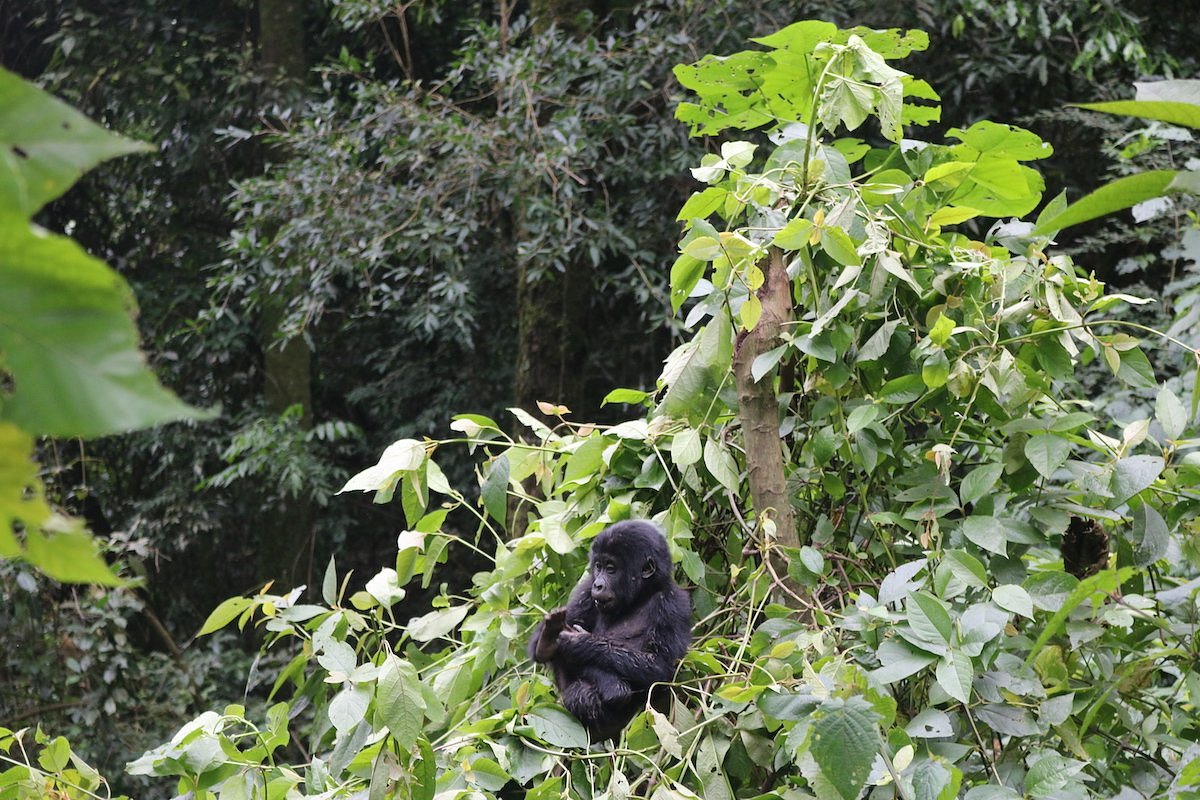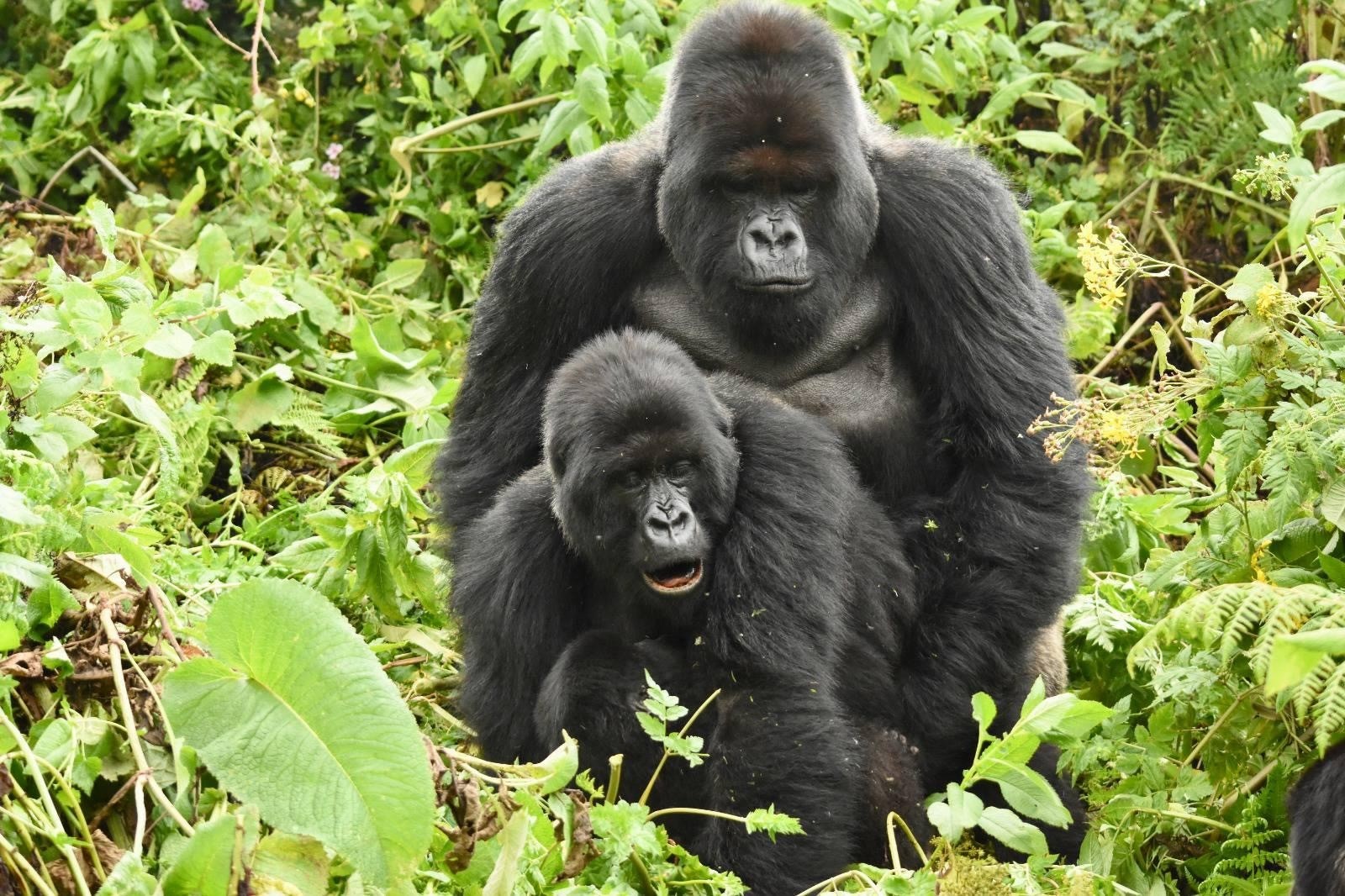Accommodation in Murchison Falls National Park -Where to Stay Embark on an unforgettable journey to…

How Intelligent are gorillas?
How intelligent are gorillas?
How intelligent are gorillas? Gorillas are listed among the highly intelligent primates in the world. In terms of brain weight, gorillas come second after humans. The average brain weight of gorillas is about 500g and humans 1250g.
Wildlife/animal mental abilities differ among apes and brain size alone can’t be a reliable indicator. Taking into account the relationship between brain and body weight positions gorillas as the last compared to the rest of the primates.
Unlike chimpanzees, gorillas are generally calm, reserved and patient creatures. They are notably less adaptable and curious than chimps. They never show the same inclination to imitate. Chimpanzees and gorillas have absolutely varying characters and it isn’t easy to make comparison between two when it comes to intelligence.
Each primate species has its unique intelligence trait which they develop due to adaptation to the environment they thrive in. Gorillas like other apes are intelligent although they do not use tools as often as chimpanzees. However, in most occasions gorillas have been sighted using sticks to gauge the depth of water, bamboo as ladder for infants to climb.
Of recent, there is a new discovery where gorillas have been spotted for the first time using sticks to tap ants without being stung. The other unique sign of gorilla intelligence is their distinct communication abilities. Gorillas can make over 25 unique vocalizations.
Use of tools
Are gorillas smarter than humans? Gorilla intelligence can be measured using their ability to turn natural materials into tools that can assist them in performing different roles. Use of tools by gorillas was first recorded in 2005 and this involved the western lowland gorillas in the Republic of the Congo. The western lowland gorilla was seen using a stick to gauge the depth of the river while crossing.
Another gorilla was also spotted using a dead shrub trunk for crossing the swampy. At Buffalo Zoological Gardens, Western lowland gorilla was observed using a bucket to collect water in 2009. An experiment was conducted involving 3 adult females and 1 adult male that were given 5 gallon buckets near a standing pool. 2 of the 3 females filled the buckets with water and this marked the first time gorillas were seen using tools to drink water at the zoo.
Compared to chimpanzees, gorillas often sleep in nests built on the ground. This is one of their unique architectural trait and also a significant sign of tool use among gorillas.
Communication
Gorillas have one of the most communication abilities which is another incredible sign of them being intelligent. They are known to have a record of over 25 distinct vocalizations which they use to communicate to each other during distress, contentment, aggression and family co-ordination.
In captivity, some gorillas are known to comprehend sign language. Use of sign language study was done on Koko, one of the popular gorillas in the world, born in San Francisco Zoo in 1971. On July 12. 1972, Francine Patterson began working with Koko and the main goal was to teach her only 3 basic signs that is food, drink & more.
Interestingly, Koko learnt sign language by observing. After about 3 months, Koko learnt 16 distinct signs and even began to create simple questions using eye contact. Over 1000 signs were mastered by Koko and it is said that Koko could connect up to 8 words together to make a statement expressing “wants”, “needs”, “thoughts” and other simple responses.
Where do I go for gorilla trekking?

Uganda, Rwanda and Congo are the 3 countries that are worth considering for gorilla trekking and for you to have an in-depth learning about gorillas while in their natural habitat. The three states inhabit the remaining world’s population of mountain gorillas- 1063 and if you are visiting DR. Congo, you will also have a chance to see the Eastern lowland gorillas in their natural habitat.
When to visit gorillas in Uganda, Rwanda & Congo
Gorillas in Uganda, Congo, and Rwanda can be visited at any time of the year. But, the dry season is more favorable for tourists to enjoy gorilla trekking experience and that is from June to September or December to February.
Please note, to have a smooth gorilla trek, you should consider packing wisely and essentially don’t leave out waterproof hiking boots, bottled water, high energy-giving snacks, long-sleeved shirts, daypack, gorilla permit (Uganda- each permit costs USD700 per person, in Rwanda USD1500 per person and Congo USD450).
Other items include a first aid kit, sweater, insect repellent, rain jacket or poncho, sunscreen, trousers, camera free of flashlight etc.
